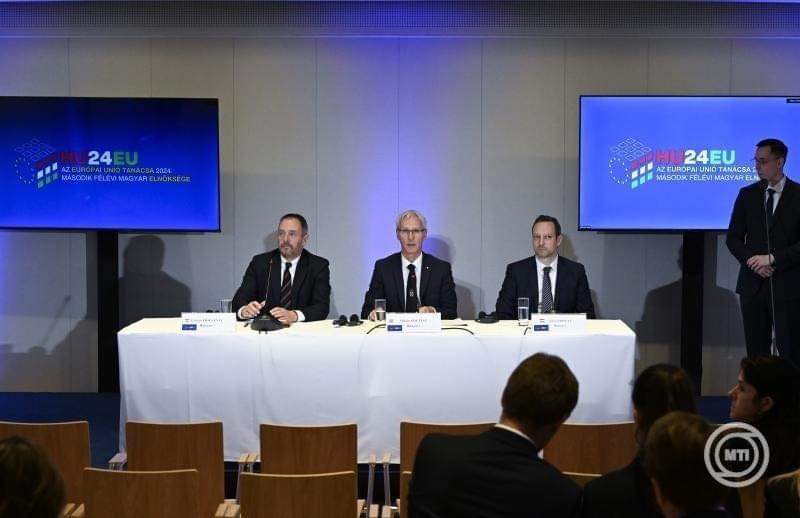
Miklós Soltész, State Secretary for Church and Ethnic Relations in Hungary, spoke at a press conference during the event “Shared Responsibility: Cooperation Between States and Religious Communities,” held on October 18, 2024, as part of Hungary’s EU presidency. The event took place at the Museum of Ethnography in Budapest, with leaders from across Europe, including MEP György Hölvényi and State Secretary Tristan Azbej, in attendance.
The conference, which brought together politicians, religious leaders, and experts, underscored concerns about Europe’s shift away from its Christian roots. Soltész warned that without the guidance of religious communities, European leaders are veering towards economic interests and ideologies that, he argued, threaten Europe’s moral foundation. Comparing today’s ideologies, like neo-Marxism and gender theory, to the communist oppression Hungary endured, Soltész stressed the need to avoid a repeat of such authoritarian eras.
He criticized the EU’s failure to heed the advice of religious leaders, pointing out how today’s leaders support war and economic interest groups while ignoring Europe’s Christian heritage. He also highlighted the risks posed by migration, which he claimed has contributed to rising religious fanaticism and terrorist acts in Europe.
Tristan Azbej, State Secretary for the Aid of Persecuted Christians, reminded the audience that Hungary was the first European country to create an office specifically dedicated to helping persecuted Christians worldwide. With over 360 million Christians facing persecution, Azbej stressed the urgency of addressing this issue, noting that Hungary’s Hungary Helps program has assisted two million people across 60 countries since 2016.
Azbej also linked migration to the persecution of Christians in Europe, asserting that fanaticism has led to increased attacks on Christian communities. He argued that Hungary’s proactive approach in defending religious freedoms should serve as a model for other European nations.
MEP György Hölvényi added that Europe’s indifference to Christianity is emboldening other religious groups, particularly Muslims, to view Christianity as increasingly irrelevant in Europe. He warned that this neglect could have profound consequences for Europe’s cultural and religious landscape.
Matthias Inniger, a researcher from North-West University in South Africa, praised Hungary for its cooperation with religious communities, noting that Hungary’s support for 32 established churches, both large and small, has benefited society at large. He argued that churches play a crucial role in social cohesion, providing essential services such as education and healthcare.
In a letter to conference participants, Andor Grósz, President of the Federation of Hungarian Jewish Communities (MAZSIHISZ), expressed gratitude to the Hungarian government for ensuring the safety of the 100,000 Jews living in the country. He contrasted the peace and security experienced by Hungary’s Jewish population with the rising antisemitism and terror affecting Jewish communities in Western Europe and on American campuses.
The conference highlighted growing concerns about the future of Europe’s Christian and Jewish heritage, with speakers calling on EU leaders to prioritize religious values and the protection of persecuted communities.